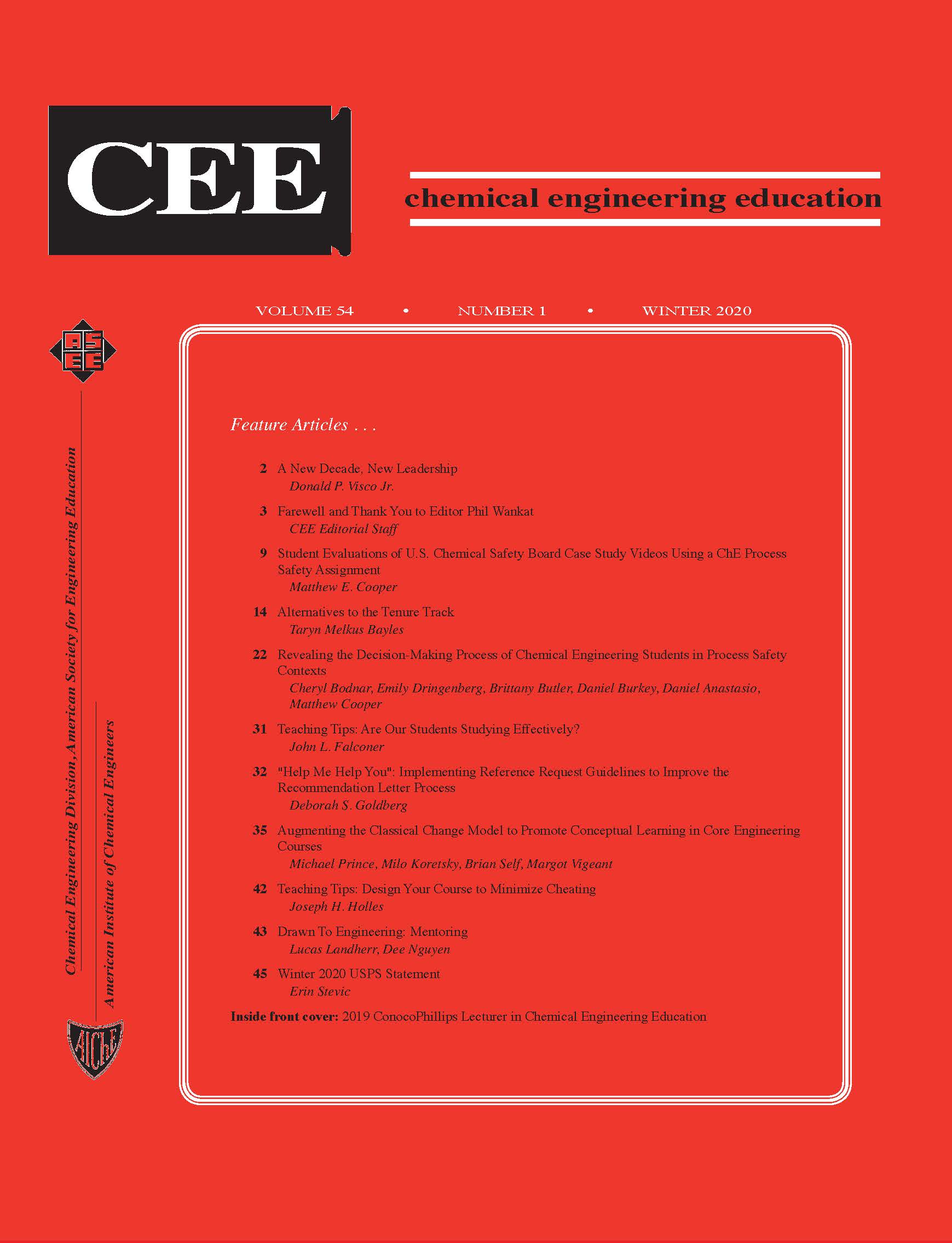Revealing the Decision-Making Processes of Chemical Engineering Students in Process Safety Contexts
关键词:
decision-making, process safety, reasoning, Undergraduate Students摘要
Chemical engineering students need to be prepared to make process safety decisions in industry. Through analysis of the decision-making process of senior chemical engineering students, we found students would rather be “better safe than sorry” and did not often acknowledge complexities associated with their decisions. Their decisions were mostly justified by rationalization. This work reaffirms the need to contextualize process safety decision making as part of the design process to better prepare students for industry.##submission.downloads##
已出版
2020-01-27
期
栏目
Manuscripts


